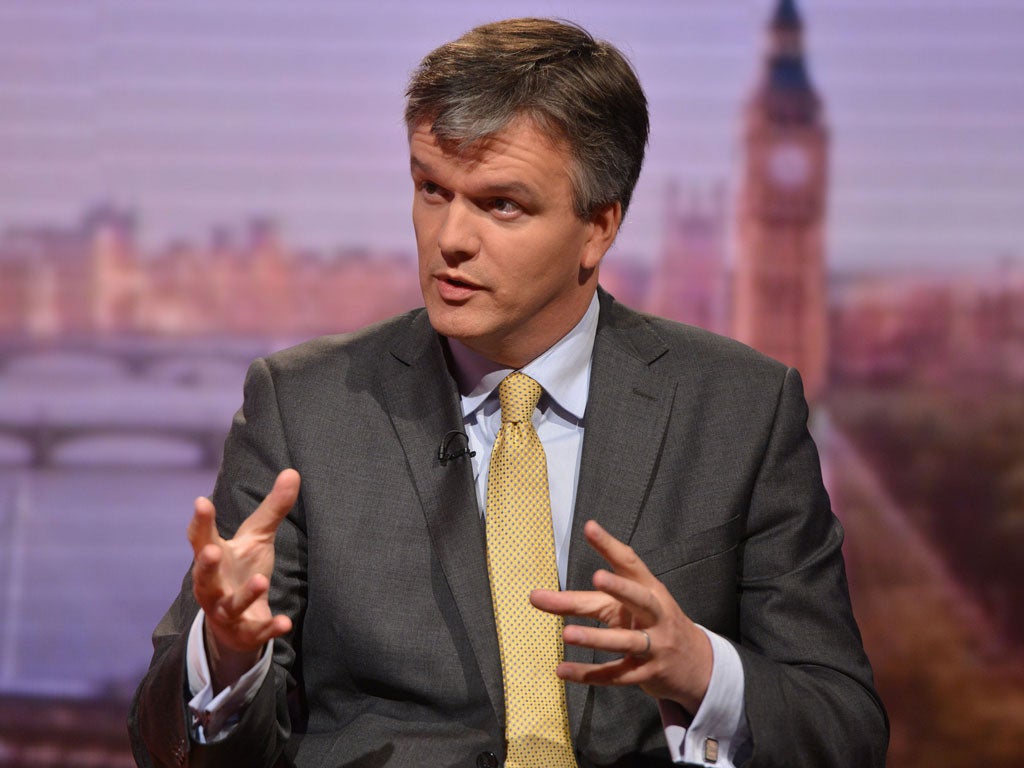The man who saved the Union: Lib Dem Michael Moore is Westminster's answer to James Bond
The SNP will ask the Scottish electorate to vote for a greased pig in a dark poke


Michael Moore may be the least-known Cabinet minister apart from David Jones, the Welsh Secretary who has been in post for only two months. Moore, however, has been Secretary of State for Scotland since May 2010. So unfamiliar was he that, a month after his appointment, he was seen in a photograph in The Times accompanying a news report about the coalition's plan to cut civil service numbers. The picture featured the street sign Whitehall SW1 with two men in suits walking by. The caption said that "thousands of civil servants" might lose their jobs. But one of the supposed mandarins, checking his BlackBerry, was Moore, heading for the Scotland Office.
He should be better known, because he is the person behind the most remarkable phenomenon of the year, the Discomfiting of Alex Salmond, first minister of Scotland.
It was Moore, I understand, who persuaded David Cameron of the wisdom of conceding that it was up to the Scottish Parliament, representing the Scottish people, to decide Scotland's future. This sudden removal of the London Government from the see-saw meant that Salmond lost his balance. When Cameron went to Edinburgh in February to announce that he would not try to stop the Scottish National Party holding a referendum, Salmond found that the great London counterweight, against which his career had been built, had been taken away.
The disaster that had befallen the SNP, of winning a majority in the Scottish Parliament last year, was now exposed to view. Almost as soon as he had won what looked like a mandate to start making Scotland an independent country, Salmond began to talk about a middle way between independence and keeping things as they are. The word "devo-max" was coined. It meant the maximum devolution of power to Scotland compatible with staying in the UK. Salmond wanted it to be an option in the referendum.
It was an option that seemed more popular than outright independence in opinion polls, but unfortunately for Salmond it was an option without organised support. Nor was it favoured by Nicola Sturgeon, his deputy, or by John Swinney, his finance secretary. For Salmond to obtain a three-option referendum, he needed Cameron to play into his hands by insisting that the UK Government would decide what the question would be. Moore persuaded colleagues in Cabinet committee that Salmond was already on the defensive and that a confrontational approach would be counter-productive.
So when it came to the talks between Scottish and UK governments that led to what the SNP grandiosely called the Edinburgh Agreement last month, Salmond entrusted the negotiating to Sturgeon. She and Moore agreed that the referendum, in 2014, would be a straight choice between independence and the Union. Long before then, however, the failure of the SNP to have thought through the practicalities of independence started to show. Although the SNP has had 300 years to prepare for this moment, Moore calculated that, if the referendum went ahead, Salmond's policies would start to unravel.
This newspaper reported in January that Spain might veto Scotland remaining in the European Union after independence, for fear of encouraging Catalan and Basque separatism. It was only in the past few weeks that the SNP was forced to admit that, when Salmond said that it had taken legal advice on that question, he meant that it had not. Worse than that, the SNP spent public money going to court to try to prevent disclosure of the inaccuracy of Salmond's statement.
The SNP, which once wanted to adopt the euro, has accepted that it would keep the pound, but Scotland would have no right to a say over the Bank of England: its monetary policies would be decided by a foreign power. At its conference last month, the party reversed its policy on Nato, so an independent Scotland would refuse to host the UK's nuclear submarines at Faslane, but it would seek the protection of Nato's nuclear umbrella.
We report today that Salmond has accepted that talks with the UK Government over the division of the national debt would not take place until after the referendum. Scottish people will be voting on the basis of a pledge by the SNP to secure an "equitable" settlement. Giving Salmond enough rope seemed risky when Moore first pressed it, but now it is paying off. It had long been assumed by constitutionalists such as Professor Robert Hazell at University College, London, that independence would require two referendums. One on the principle and one on the terms of the deal. The SNP's insistence on a single referendum means that it will be asking the Scottish electorate to vote for a greased pig in a dark poke.
Salmond has been underestimated before, although support for independence in opinion polls has rarely exceeded one third of the electorate. But he may have met his match in Moore, as skilful in judging the politics of Whitehall as he is the mood of Scotland. It may be that, after the referendum, Moore will be counted the most successful Liberal Democrat in the Cabinet, and, even, the man who saved the United Kingdom.

Join our commenting forum
Join thought-provoking conversations, follow other Independent readers and see their replies